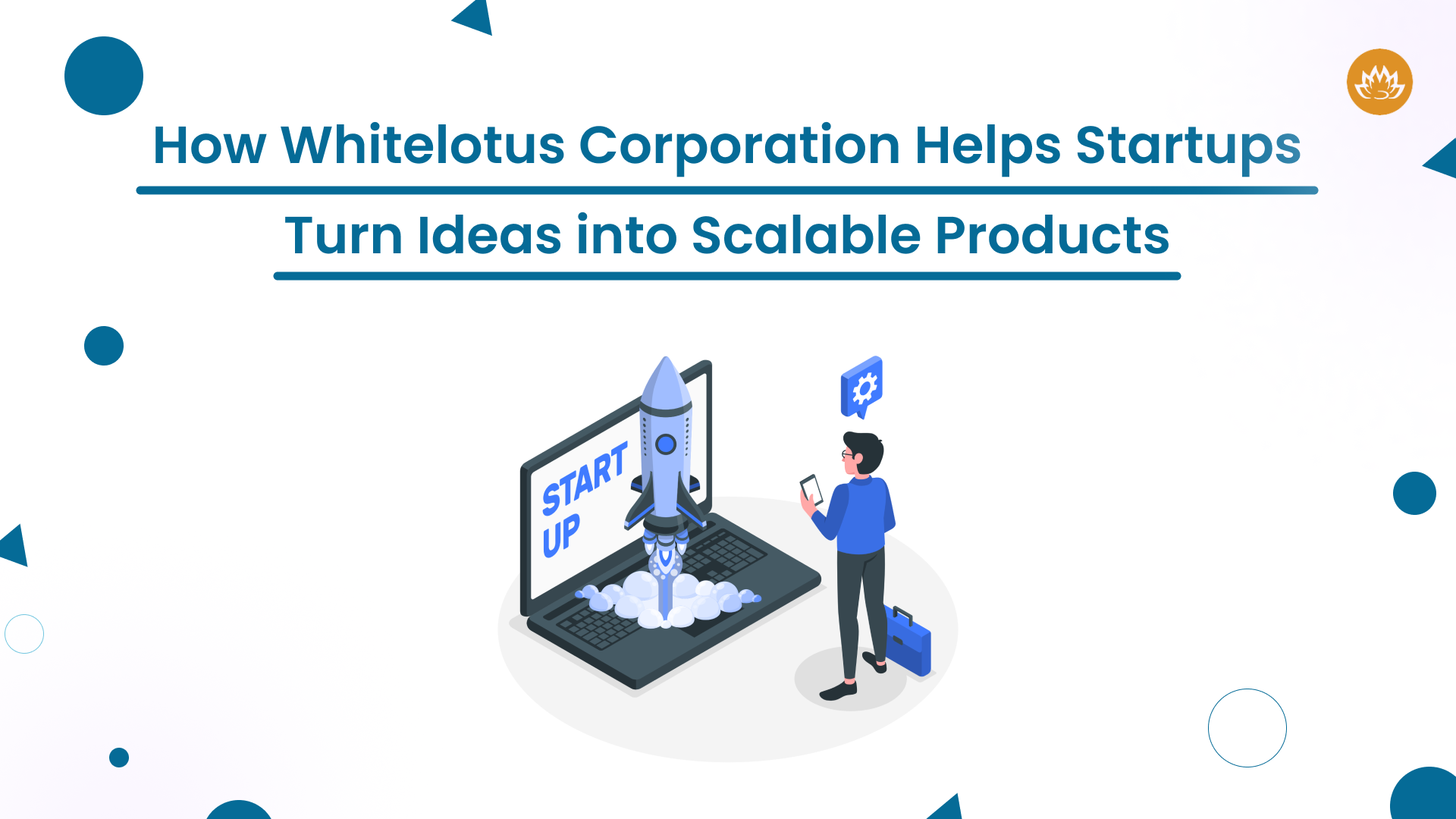AI-driven healthcare apps are gradually changing the way patients interact with medical services. It has given the healthcare industry a brand new perspective, providing services effortlessly and quickly. With AI becoming a regular part of healthcare, doctors and staff can improve patient engagement, receive quick diagnostics, and provide remote care for better access.
With AI already in use, healthcare professionals find it so easy to reduce repetitive work for medical staff. And with much more to give, AI comes with a cost. So the question is, how much? Healthcare startups and even established healthcare organizations want to know the exact cost of building an AI app for the healthcare industry. These companies approach healthcare app development services to create apps that benefit their staff and operations in various ways.
In this article, we’ll examine the actual cost of developing a healthcare AI app in 2025. We’ll review the factors that influence cost, the key features to consider, and what to expect when working with a mobile app development company. This guide serves as a solid starting point for those who intend to invest in custom AI development.
Reason AI Transformation is Found in Healthcare Industry

Doctors are using AI to work more efficiently, make better decisions, and spend less time on repetitive activities. AI models are already being used in diagnostics to find trends in patient records, lab reports, and scans. Businesses such as PathAI are developing their systems to help pathologists diagnose conditions, including cancer, faster and with greater accuracy.
Before determining if a patient needs to see a doctor, applications such as Babylon Health and Ada are helping users gain a basic understanding of their symptoms. Although these tools don’t replace medical guidance, they help prioritize and filter care, easing the burden on hospitals.
AI is also becoming more and more critical in the treatment of chronic diseases. Using information from wearables or patient records, predictive models can notify physicians before a problem worsens. Additionally, natural language processing-powered virtual assistants are assisting with appointment scheduling and responding to frequently asked patient questions.
Not only is the technology getting better, but the problems it answers are also very real, which is why this type of AI application development in healthcare is growing in popularity. A well-designed AI healthcare software can help patients receive care more quickly, save time, and minimize errors.
Accelerate Clinical Trials
With AI, all clinical trials become faster. AI can find out ideal candidates, predict outcomes, and scrutinize the data in real-time. So there will be no delays, errors, and the time needed to bring new treatments will be less.
Health Plans Personalization
AI makes it possible for insurers and healthcare professionals to customize insurance policies based on a person’s genetics, lifestyle, and medical history. Long-term health outcomes, preventive care, and patient involvement are all enhanced by this individualized approach.
Patient Care Enhancement
AI improves patient care by providing predictive insights, ongoing monitoring, and quicker diagnosis. Healthcare providers may make better decisions and treat patients more quickly and proactively with the use of technologies like virtual assistants and AI-powered imaging.
Automated Admin Procedures
Repetitive administrative tasks, such as medical coding, appointment scheduling, and billing, are automated by AI. This simplifies processes, saves expenses, minimizes human error, and frees up healthcare workers to concentrate more on patient care than paperwork.
Real Costs of Developing AI Apps for Healthcare Applications
The type of AI being utilized and the complexity of the solution can significantly impact the cost of developing an AI-powered healthcare app. While some programs may concentrate on backend automation, medical imaging, or patient communication, others are designed to manage predictive analytics. To aid in your planning, we have provided some detailed cost examples.
Actual cost factors, including data annotation, model tuning, HIPAA compliance, and interaction with the current healthcare system, are taken into consideration in these figures. For instance, a symptom checker may require minimal compliance documentation and simple NLP fine-tuning. However, diagnostic imaging AI is more costly and time-consuming to develop, as it must adhere to strict HIPAA data protection regulations and requires access to large medical datasets and clinical validation. This explains the huge variation in prices.
Key Factors That Influence AI-Driven Healthcare App Development Costs

AI Model Complexity
A huge language model differs greatly from a simple chatbot. More complexity necessitates more time for training, validation, and data preparation.
Kind of Features
The more features your software has, the more time and money it will take to develop and maintain.
Integration Needs
With all those integrations, such as insurance, APIs for insurance, and wearable data, some efforts come into play and add costs.
Compliance Needs
Some non-negotiable checks are essential, such as HIPAA, GDPR, and FDA. All of them are compulsory and unavoidable.
Location of Mobile App Development Company
If you hire dedicated developers from an offshore mobile app development company, you can reduce the costs of developing an AI-based mobile app to a great extent.
Ongoing Maintenance
Ongoing maintenance is essential, especially in the first few months. Therefore, you can allocate around 25% of your initial budget for updates and monitoring.
What is the cost of adding AI to an Existing Healthcare App
It’s not always necessary to start from scratch when integrating AI elements into an existing healthcare software. Modules such as analytics dashboards, chatbots, and symptom checkers can frequently be added.
AI integration into an existing app typically costs between $20,000 and $60,000.
However, your app architecture may need to be modified for more complex improvements like real-time EMR sync or diagnostic support. A partial rebuild might be more effective in some situations.
Tips To Save Costs With Zero Compromise on the AI Performance

If you plan, developing healthcare AI software doesn’t have to be expensive. Here are some strategies for controlling expenses without sacrificing performance.
Start with Core AI Features and an MVP.
Prioritize the important things first. A chatbot, simple patient triage, or a single AI-powered dashboard might be the only components of a healthcare AI MVP. This enables you to test the concept before spending money on a comprehensive solution.
Make Use of Pre-Trained Models
It’s not always necessary to start from scratch when training an AI model. It is possible to modify open-source frameworks such as MedPaLM and BERT for use in healthcare applications. It reduces infrastructure expenses, data needs, and training time.
Choose cloud-based architecture.
Use services like AWS, Azure, or GCP to run your AI infrastructure instead of maintaining your own servers. You simply pay for what you use with cloud-based configurations, which are more adaptable and scale as your business does.
Select the Appropriate Mobile App Development Company for Outsourcing
Outsourcing AI development can result in significant cost savings, particularly if you collaborate with a team that is familiar with the healthcare industry. Seek out a partner who has experience with both AI and compliance.
Engage in Agile Sprints
Building in phases keeps finances on track and helps identify issues early. Additionally, agile sprints enable you to modify features and priorities based on what works, rather than just what was initially planned. It’s a useful method of controlling AI app development expenses without compromising on quality.
Why Choose A Reputed Software Development Company for Building an AI App for Your Healthcare Establishment
Trial and error is not an option in the healthcare sector, particularly when developing AI systems that manage clinical workflows, sensitive patient data, or any other aspect involving patient care.
There will be fewer errors, more seamless communication, and quicker turnaround times when you work with a team that is knowledgeable about both AI and medical compliance. Every level, from architecture to user interface, must adhere to regulations like HIPAA and GDPR.
Experience counts when you hire dedicated developers for the healthcare industry. You may steer clear of frequent hazards and maintain project progress without delays by assembling a team that is knowledgeable in patient privacy, electronic medical records, and healthcare integrations.
At Whitelotus Corporation, we have developed dependable, safe, and intuitive AI solutions in collaboration with healthcare teams. We give prirority to beneficial results and long-term performance, whether we’re developing a custom healthcare AI software, a predictive analytics dashboard, or a chatbot for patient triage.
Final Thoughts
The development of AI healthcare apps is a costly endeavor. They can, however, provide long-term benefits beyond cost reduction. When used in the right manner, AI can reduce human errors, facilitate faster decision-making, and ca improve the overall patient experience. You can automate tedious processes, such as scheduling, documentation, and early triage, which also reduces the workload on healthcare teams.
This eventually results in better results, fewer bottlenecks, and less operational stress. We’re already witnessing this in action, whether it’s chatbots helping clinics better manage appointment loads or AI-powered imaging technologies assisting radiologists in detecting early disease indications. Contact us to know more about our services today!
Author

Kirtan is CEO of Whitelotus Corporation, an emerging tech agency aimed to empower startups and enterprises around the world by its digital software solutions such as mobile and web applications. As a CEO, he plays key role in business development by bringing innovation through latest technical service offering, creating various strategic partnerships, and help build company's global reputation by delivering excellence to customers.
View all posts












